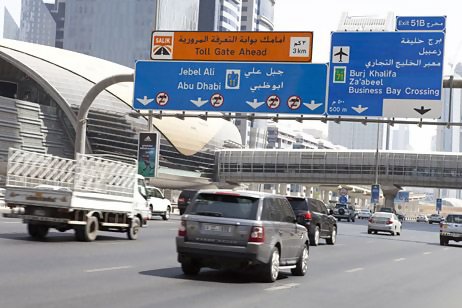Cities, Not Countries, Will Once Again be Key to World Order
The National |

By Parag Khanna
As a child growing up on Sheikh Hamdan Street in Abu Dhabi in early 1980s, we used to take long family drives - nearly 300 kilometres -in a blue Buick sedan to Khorfakkan, Fujairah, to lay on the beach by the sea. Sometimes there was no other car for miles. Along the way, we would stop so I could climb up the sand dunes and tumble down under the glaring sun.
Today the same route has become a long urban corridor encompassing Dubai, Sharjah and the other emirates. No matter what the state of relations among them, their growing physical unity is undeniable. This urban fusion is also occurring in other regions of great dynamism and productivity: San Francisco to San Jose ("Silicon Valley"), Tokyo to Osaka, Hong Kong to Guangzhou (the Pearl River Delta), and Shanghai to Nanjing, for example.
Urban corridors are a force multiplier, a source of great strength. Today the UAE is the most open, liveable and prosperous society in the region, making it effectively the de-facto capital of the Arab world. Stable, diversified, and far-sighted, it is to the Arab world today what Baghdad and Damascus have been for centuries past. My colleague Daniel Brook, in his new book A History of Future Cities, calls the UAE the "centre of the world".
This is not the first time cities, rather than nations, have been the pivotal foundations of world order. The Silk Road was traversed by the great explorer Ibn Battuta seven centuries ago. Once again, it is time to appreciate that inter-city relations are replacing international relations. So much of what constitutes progressive diplomacy today is comprised of inter-city relations. Multinational companies forge mergers and acquisitions deals with counterparts in other global capitals; stock exchange mergers are on the rise between financial centres; the C40 Clinton climate initiative among dozens of the world's leading mayors centres on the exchange of energy-efficient building technologies among cities.
In an urbanising world, the key lessons in managing income inequality and creating jobs for youth will come from cities rather than countries. Iron silk roads are being built stretching from Shanghai to Istanbul, creating massive opportunities for commercial exchange and mobility. The GCC's planned railway is another key infrastructure contributor to driving inter-city economics. Jebel Ali, meanwhile, ranks as one of the world's busiest ports alongside Rotterdam, Singapore and Shenzhen.
As a new resident of Singapore, I am constantly learning the crucial lessons the city-state - which I consider to be the unofficial capital of Asia much as Abu Dhabi is for the Arab world - can teach to other leading urban centres and corridors such as the UAE. Some of these lessons are as follows.
First, use technology to empower the population: Singapore will have fibre-optic internet access island-wide by 2015.
Second, the use of scenario planning to forecast diverse possibilities and strategies for a turbulent world.
Third, complement urban master planning with economic master-planning. This means investing in the vocational training systems that prepare the labour force for rapidly shifting supply chains.
Fourth, use data and social media as a tool of governance to more efficiently deliver public services and manage traffic.
Fifth, constantly upgrade infrastructure to meet sustainability standards.
Sixth, expand the economic footprint through investing in special economic zones in neighbouring countries.
Seventh, and finally, think of all residents of increasingly multinational/ethnic cities not as citizens versus non-citizens, but as stakeholders.
Every one of these applies to the UAE, and all can be mastered here and passed on to the rest of region.
Ultimately, the transmission of these lessons will accelerate the transition towards a world where networks of smart cities lead the way in to the future.